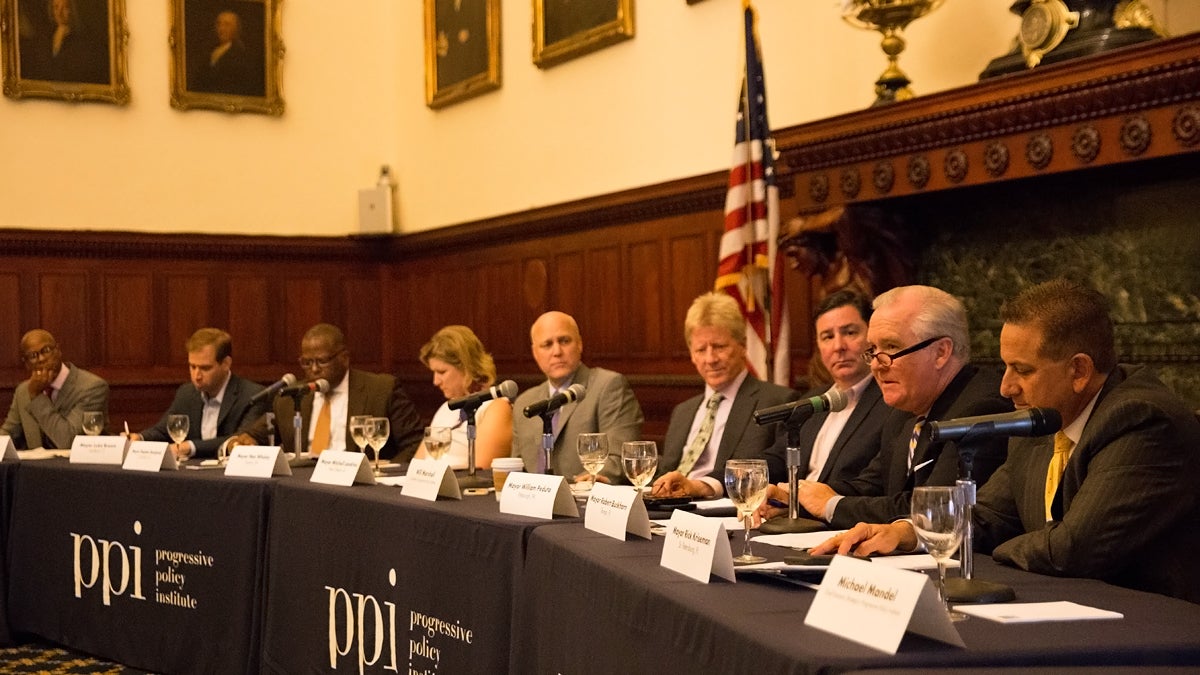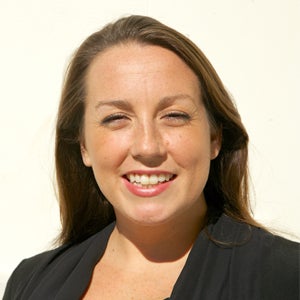On the first day of DNC, mayors ask for better urban policies

From left to right: Clarence Anthony
In a discussion on the first day of the Democratic National Convention seven mayors from six states agreed that there’s a disconnect between local governments and their state and federal counterparts.
More than 80 percent of the U.S. population lives in urban areas, yet only three paragraphs of the Democratic platform, a 55-page document, are dedicated to building stronger cities and metro areas, said Will Marshall, president of the Progressive Policy Institute.
The institute hosted Going Local: A Conversation with Progressive Mayors at City Hall, in front of an audience of about 40 people in Philadelphia on Monday.
The federal government can’t do much because of gridlock and polarization in Washington D.C, said Marshall. It’s local leaders, mayors, and civic coalitions that are actually solving problems and driving innovation and economic growth across the country.
Tampa Mayor Bob Buckhorn called for more recognition of cities on the federal level and for more autonomy from state and federal governments.
“We know our communities better than any other elected official out there,” said Buckhorn.”Give us the opportunity to decide for ourselves what our future looks like.”
Buckhorn added that unlike other elected officials, mayors live beside their constituents, and see them at a restaurant or on the streets, so they are held more accountable.
Several mayors said the problem for local governments isn’t with the federal level so much as with state legislatures that seem out of touch with needs of urban communities.
Pittsburgh Mayor Bill Peduto said that when you are a blue city in a red state, like his city is, what you ask of your state government is just “do no harm.”
Columbia, South Carolina Mayor Stephen Benjamin and Dayton, Ohio Mayor Nan Whaley agreed.
“I do go back to Ohio and just hope that the state legislature forgets about the cities of Ohio,” said Whaley. “We always say the most dangerous time in Ohio is when the state legislature is in session.”
One suggestion from several mayors was to bypass state legislatures altogether and form direct relationships with the federal administration. Also, to look at other cities as models and even form regional partnerships with other cities to be able to compete on an international level.
“We all have the same problems and the problems that we have, we can look at each other,” said Peduto. “Every mayor up here has turned their cities into urban labs.”
Mayors also emphasized the need for more resources — especially when it comes to public safety.
After the recent tragedies in Orlando and Dallas, New Orleans Mayor Mitch Landrieu said public safety in America, homeland security, and police-community relations are morphing into one issue and the leaders on the front lines are mayors, police chiefs, and ministers.
“Every mayor in America knows that the answer to this problem is that the police department has to be the community and the community has to be the police department,” said Landrieu.
He added that without resources and funding from Homeland Security, Community Oriented Policing Services (COPS), and other programs that have proven to be successful, it’s difficult for cities to get to that point.
Absent of attention and funding from state and federal governments, Clarence Anthony, executive director of the National League of Cities, said mayors need to stand up a little more and demand that both Democrats and Republicans take the concerns and creativity coming out of America’s cities more seriously.
WHYY is your source for fact-based, in-depth journalism and information. As a nonprofit organization, we rely on financial support from readers like you. Please give today.



